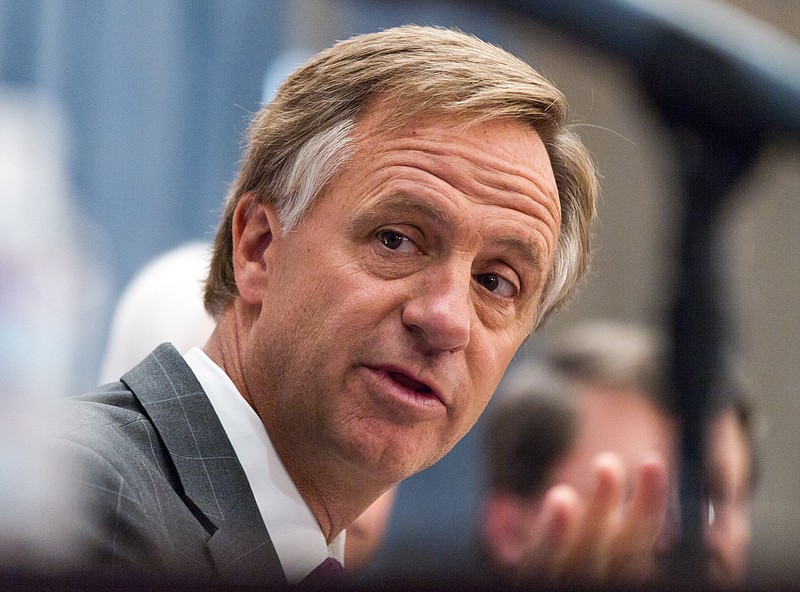NASHVILLE -- Gov. Bill Haslam, state lawmakers, higher education officials and business leaders on Monday celebrated strides the state has made in its "Drive to 55" initiative to boost the number of Tennesseans with post-secondary degrees.
But they said far more work remains to be done.
"There's a lot of reason for optimism and encouragement," Haslam said at the end of the summit and discussion. "Our task is to take this back and see if there are specific things that we can do differently."
He later told reporters, "you can see there are big challenges in front of us."
Drive to 55 aims to increase the number of Tennesseans with post-high school educations to 55 percent by 2025 through a number of initiatives. A major engine for that is the Tennessee Promise program, which has won national attention by offering last-dollar scholarships to all state high school graduates for two-year college degree programs.
During the summit, business leaders stressed what they see as a need to get even more high school students to engage earlier. And higher education leaders of four-year institutions and a top lawmaker, Senate Majority Leader Mark Norris, R-Collierville, said more work is needed on "transfer pathways" that allow students to transfer more seamlessly from technical institutes to two-year colleges and from there to four-year universities.
Tennessee's latest figure for post-high school attainment is 33.8 percent. But according to University of Tennessee researchers, the figure rises to about 38 percent when post-high school certificate degree graduates are included.
Yet another Drive to 55 initiative, called Reconnect Tennessee, encourages adults to obtain free schooling from technical colleges. Officials say they've seen nearly 5,000 adults apply to come back, representing an 18 percent enrollment jump.
State Education Commissioner Candice McQueen said the primary challenges remain culture and access.
Krissy De Alejandro, executive director of of tnAchieves, the nonprofit group upon which Tennessee Promise is modeled, agreed. She stressed the importance of work done by voluntary mentors who help often first-generation college hopefuls in areas ranging from applications to colleges to advice on what to expect and encouragement once in school.
"All it took was someone to say, 'I support you,'" De Alejandro told summit attendees.
But she said far more than the now estimated 7,400 mentors are needed. Norris said that Memphis alone, for example, has some 270 mentors but needs 1,500.
Mike Krause, executive director of Tennessee Promise & Drive to 55, said Tennessee now ranks No. 1 in the nation in terms of students applying for the Free Application for Federal Student Aid program. State students accounted for 40 percent of all new financial submissions nationwide, he said.
And the state's community colleges have seen a 14 percent jump in enrollment, he said.
Krause also pointed to strides made under the state's SAILS program, created at Chattanooga State. That program targets students still in high school for remedial or developmental work in areas such as math and English.
In the past, the students would wind up in college or community colleges and be forced into remedial programs there, often leading to frustration and higher dropout rates. Correcting problems while the students are still in high school is helping, Krause said.
Contact staff writer Andy Sher at 615-255-0550 or asher@timesfreepress.com.
